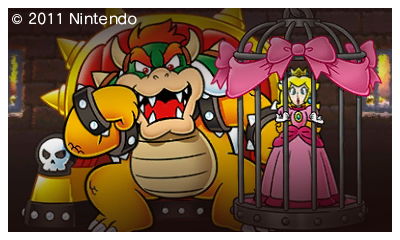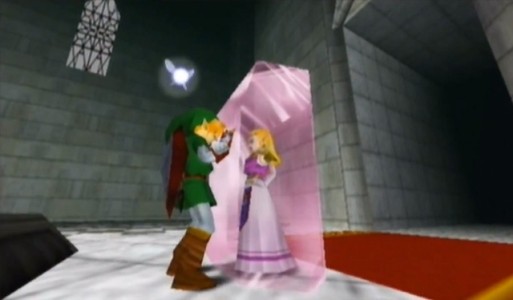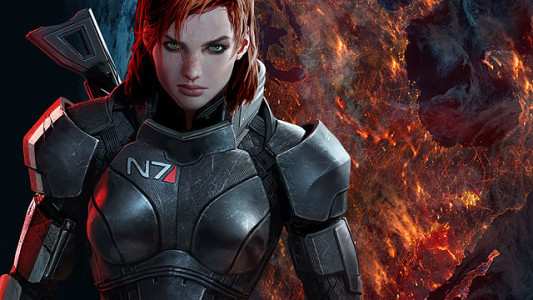Females have been featured in video games almost as long as males. They have evolved from crude pixelated images into life-like forms on screen. Women in games have come a long way graphicly, certainly, but it seems as though they haven’t come very far in terms of their storyline substance. In many games, even current ones, a female character’s sole purpose is either to be the object of desire for the protagonist or violated and victimized for the sake of shock value.
One of the most common tropes that females follow in video games is the role of the damsel in distress. To be coined a damsel in distress, the female must somehow be disempowered to a state of helplessness and requires rescuing or assistance from the protagonist. This usually means that the female character will be kidnapped, abducted or in some other way deprived of power.
Princess Peach is the pinnacle of damsels in distress. The iconic princess appears in 14 of the Mario Brothers games and she is kidnapped in 13 of them.
Princess Zelda from the Legend of Zelda games is another wonderful example of a damsel in distress; every incarnation of Princess Zelda has been kidnapped, cursed, possessed, turned to stone or made helpless in some other way.
Even in other titles like The Legend of Zelda: The Wind Waker, Zelda is disguised as a pirate captain by the name of Tetra and accompanies Link on his quest for a short time. When her true identity is discovered later, and she’s ultimately returned to her more recognizable form, she is told that it is too dangerous to further accompany Link and she waits in the castle until she is kidnapped shortly after.
The damsel in distress trope was extremely popular during the 1980s and 1990s, but in recent years the trope has had a bit of resurgence and has become very popular again. The trope at its core rips power away from the female characters and puts them in a position of helplessness regardless of their powers, strengths, skills or intelligence. The damsel in distress usually then becomes the sole motivation for the male protagonist, and the female character becomes something of a prize for the character to win.
Quite frankly, I am sick of the damsel in distress trope because it is just so overused and it doesn’t allow the female character to actually be a part of the story. Sure, she is the motivation for the hero’s quest most of the time, but once she has been rescued or saved the character no longer has a purpose. Its frustrating how many games, even some of the more modern titles, use the damsel in distress trope. I’m bored of it. I would love to see a game where the damsel in distress saves herself for once.
Not every female character in video games is represented negatively however, there are some wonderful female characters in video games who are given strong storylines without the common tropes that are normally associated with characters of their gender. Laura Croft from the Tomb Raider series is a great example. She is a highly intelligent, confident character who went to Oxford and relies on her intelligence and cunning to get her out of perilous situations.
Another example of a good female representation in video games would be Female Commander Shepard (Or Femshep as she is lovingly called by fans) of the Mass Effect series. Mass Effect is very dear to my heart, and Commander Shepard is one of my favorite video game characters of all time. Why? Because Shepard was written like a person. Bioware’s choice-based system allows the player to control every decision and aspect of Commander Shepard, allowing her to show as much, or as little, emotion as desired.
Commander Shepard fights, cries, argues and laughs but perhaps the part that sets her apart from other characters is that she saves herself and millions of others. She may be kidnapped or helpless but she does not rely on someone else to save her. She does that herself.
These are the types of female characters I hope to see in future video games. I think it is time for video game creators to toss aside these decades-old tropes and start with something new. Perhaps they should take the advice of authors and movie directors who have found huge success in portraying female characters and create a female character who saves herself for once.




